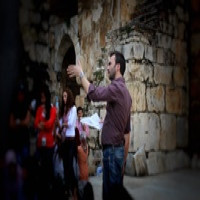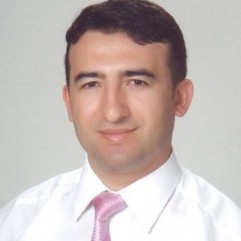Research Article
Issue Editorial Board

Issue Reviewers




 0000-0001-7554-0202
0000-0001-7554-0202


Aim & Scope
Urban 21 Journal is a peer-reviewed international scientific journal that takes its name and main motivation from the theme of “city and urbanization in the 21st century”. Since urbanization is becoming an increasingly critical phenomenon today, the journal aims to encourage the publication of up-to-date research on urban and urbanization processes.
In the 21st century, urban and urbanization phenomena have become one of the main issues on the global agenda with their economic, social, political and environmental dimensions. Today, a significant portion of the world's population lives in cities, and cities face multifaceted challenges such as global warming and climate change, environmental degradation, noise pollution, traffic congestion, rapid depletion of natural resources, infrastructure inadequacies and security problems, as well as rapid transformation in information and communication technologies. In this context, Urban 21 Journal aims to contribute to the production of academic knowledge by including scientific studies on the transformations in urban and urbanization processes, original research on structural and managerial problems faced by cities, theoretical discussions and applied case studies.
Urban 21 Journal includes academic studies such as book reviews, articles (opinion, research, review) related to urban and urbanization issues from the fields of social sciences and humanities on the following topics:
📌 Management & Planning
🏛️ Public Administration
🏢 Local Governments
🚨 Disaster Management
🌆 Urban and Urbanization Policies
🏗️ Urban Transformation Practices
🤖 Smart Cities
📌 Environment and Sustainability
🌱 Environmental Policies
🔋 Sustainability Studies
♻️ Waste and Recycling
📌 Technology
📡 Technology Driven Research
🧑💻Kamu and Digital Transformation in Local Governments
🔬Disaster Technologies
🏠City Technologies
📌 Socioeconomic, Cultural and Historical Perspective
🏛️ Architecture
📜 History
👥 Sociology
🌍 Anthropology
⛏️ Archaeology
🗺️ Geography
Translated with www.DeepL.com/Translator (free version)
Author Guidelines
➡️Urban 21 The language and expression of the studies submitted to the Journal should be clear and understandable in accordance with scientific criteria. For works written in English, the “Oxford English Dictionary” should be used as a reference for the spelling of words. For works written in Turkish, the “Turkish Language Association Dictionaries” should be used as a reference for the spelling of words.
➡️Metinlerde Compliance with the spelling rules of the Turkish Language Association is a prerequisite.
Article Length
➡️Makale length may vary depending on the scope and depth of the topic being addressed. However, unlike broader works such as theses or e-books, academic articles require a certain limitation. This limitation is important to increase the readability of the article, to convey the subject concisely and effectively, and to comply with the word or page limits set by the journal.
As ➡️Genel, the limits accepted by our journal are as follows:
🏠 Science (SCI, AHCI): 3,000 - 5,000 words
🏠 Social sciences (SSCI): 5,000 - 8,000 words
🏠Interdisciplinary studies: 5,000 - 6,000 words
Similarity Rate
➡️Gönderilen articles should be accompanied by a similarity report from programs such as iThenticate, Turnitin or plagiarism.net.
The maximum similarity rates ➡️Kabul are as follows:
🏠Total similarity rate should be maximum 20%.
🏠A maximum of 1% similarity is accepted for each citation.
🏠This rate cannot exceed 3% in articles produced from theses.
🏠A maximum of 10% similarity is accepted for each citation in citations from legal regulations.
In the similarity report taken from ➡️Tam text, the headers and footers in the journal's template are excluded. If the article is accepted in the referee process, the field editors receive a similarity report again on the final version.
Ethical Principles and Publication Policy
The publication processes applied in Urban 21 Journal are the basis for the development and dissemination of knowledge in an impartial and reputable manner. The processes applied in this direction are directly reflected in the quality of the work of the authors and the institutions supporting the authors.
Peer-reviewed studies are studies that embody and support the scientific method. At this point, it is important that all stakeholders of the process (authors, readers and researchers, publishers, referees and editors) comply with the standards for ethical principles.
Urban 21 Journal expects all stakeholders to carry the following ethical responsibilities within the scope of publication ethics. iThenticate, Turnitin or plagiarism.net can be used for ethical auditing and prevention of unethical attempts.
Within the framework of ethical rules; researches that require “Ethics Committee Permission” for evaluation in the journal are as follows:
All kinds of research conducted with qualitative or quantitative approaches that require data collection from participants using survey, interview, focus group, observation, experiment, interview techniques,
Use of humans and animals (including materials/data) for experimental or other scientific purposes,
Clinical trials in humans,
Research on animals,
Retrospective studies in accordance with the personal data protection law.
In this context, in the studies to be evaluated in our journal;
Stating that the “informed consent form” has been obtained in case presentations,
Obtaining and indicating permission from the owners for the use of scales, questionnaires, photographs belonging to others,
It should be stated that copyright regulations are complied with for the intellectual and artistic works used.
Attention should be paid to the compliance of the articles with research and publication ethics and the recommendations of ICMJE (International Committee of Medical Journal Editors) and the international standards of COPE (Committee on Publication Ethics) for authors should be taken into account.
Price Policy
Urban 21 Dergisi, yayın süreçlerinin hiçbir aşamasında yazar/yazarlardan ücret talep etmemektedir.

